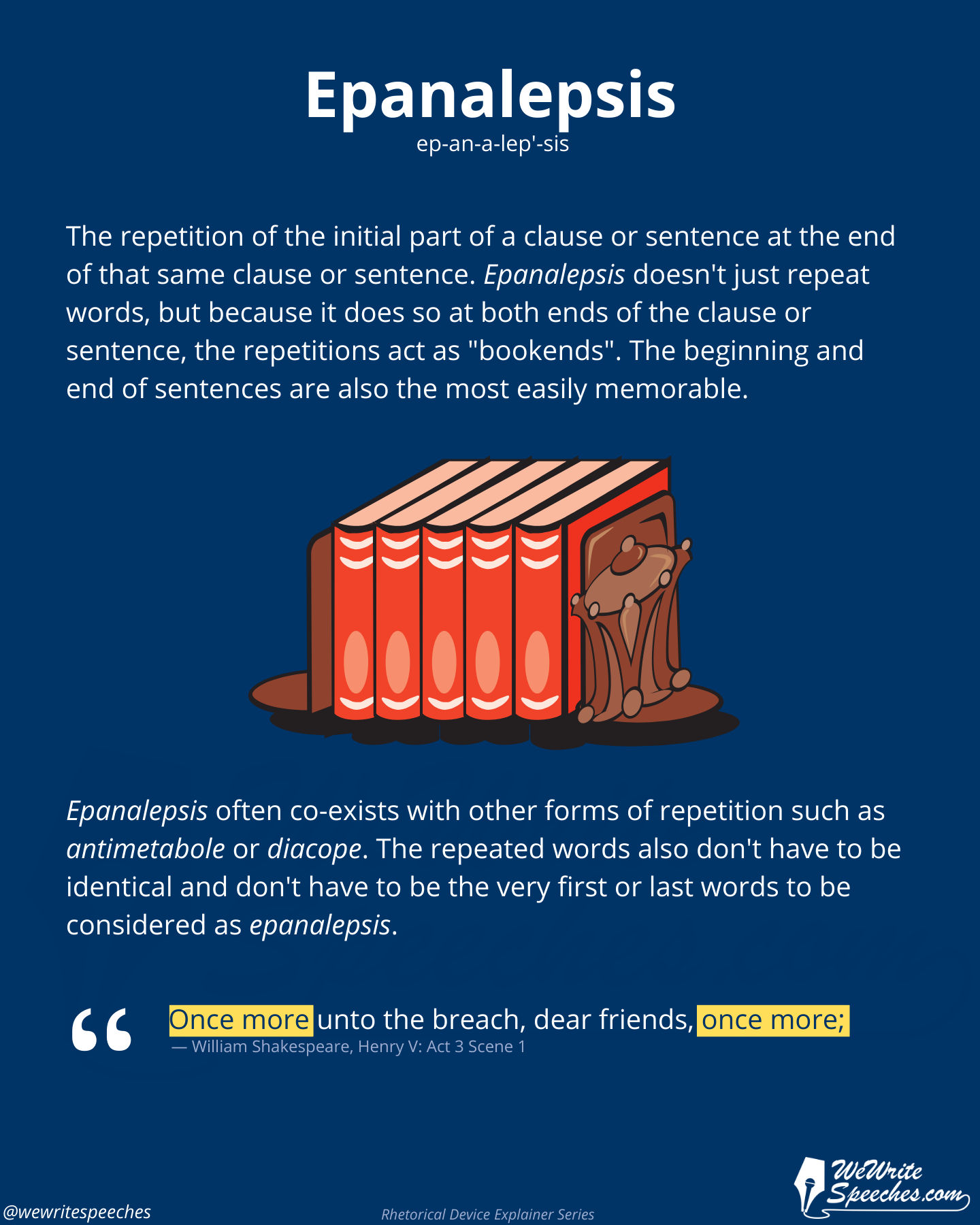Rhetorical Device: Epanalepsis
Epanalepsis is a versatile rhetorical device used in public speaking which involves the repetition of words or phrases at the beginning and end of a sentence, clause, or phrase. It can also be used across two sentences.
This device is often used to draw attention to an idea and emphasize its importance. Additionally, it imparts an element of rhythm and balance that can help retain the listener's attention throughout longer speeches. By repeating concepts at the start and end of their expressions, speakers can also create a sense of comprehensiveness or completeness when discussing complex topics.
Examples
Once more unto the breach, dear friends, once more; William Shakespeare, "Henry V: Act 3 Scene 1"
The time must come. It's enough -- enough to go to cemeteries, enough to weep for oceans -- it's enough.Elie Wiesel, "Speech at Buchenwald Concentration Camp" (4 June 2009)
I ask you to consider the evidence. Don't turn away from the truth. Don't turn away from your conscience. Please, don't ignore the law. No, embrace that higher principle for which the law was meant to serve: Justice -- that's all I ask -- justice. Denzel Washington as Rubin 'Hurricane' Carter in "The Hurricane" (1999)
A minimum wage that is not a livable wage can never be a minimum wage. Ralph Nader, "Speech to the NAACP" (11 July 2000)

We stand at Rossa’s grave not in sadness but rather in exaltation of spirit that it has been given to us to come thus into so close a communion with that brave and splendid Gael. Splendid and holy causes are served by men who are themselves splendid and holy. O’Donovan Rossa was splendid in the proud manhood of him, splendid in the heroic grace of him, splendid in the Gaelic strength and clarity and truth of him.Padraig Pearse, "Jeremiah O’Donovan Rossa’s Funeral" (1 August 1915)
Romans, countrymen, and lovers! hear me for my cause, and be silent, that you may hear: believe me for mine honour, and have respect to mine honour, that you may believe. William Shakespeare, "Julius Caesar: Act 3 Scene 2"
Further reading
- Wikipedia: Epanalepsis Visit
- Silva Rhetoricæ: The Forest of Rhetoric Visit
- Your Dictionary: Epanalepsis Visit
- American Rhetoric: Epanalepsis Visit
- Manner of Speaking: article on epanalepsis Visit
- MyShakespeare.me: epanalepsis Visit
- LitCharts: epanalepsis Visit
- ThoughtCo. article on epanalepsis Visit
